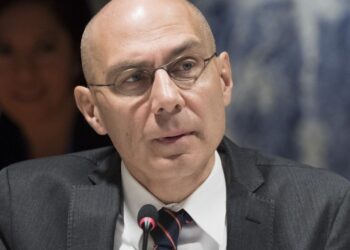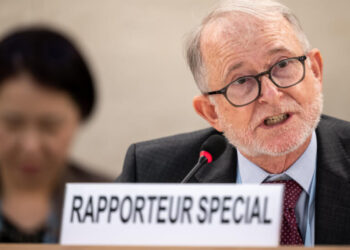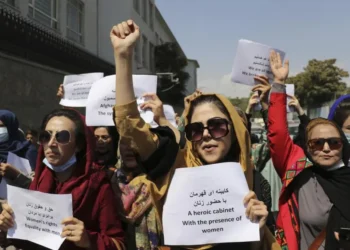Human Lives Human Rights: Since the 1970s, prominent Saudi citizens, Ministries of the Saudi government, Charity Committees of the Saudi government, and the international Islamic charities based in Saudi Arabia have provided financial and relief assistance to Muslims around the world. This includes assistance to individuals and groups who have been involved in or victimized by various nationalist or religious conflicts. Saudi Arabia has made similar efforts on government and private level to enable education and Tablighi programs in dozens of Muslim-majority and Muslim minority countries. In places such as Afghanistan, Pakistan, Philippines, Chechnya, Bosnia, Indonesia, Nigeria, Kashmir, Kosovo, the West Bank and Gaza, some of these activities appear to have provided financial or material support to individuals or groups actively involved in terrorism.
Saudi charities, a source of funding for terrorism
According to the U.S. State Department 2007 International Narcotics Control Strategy Report, “Saudi donors and unregulated charities have been a major source of financing to extremist and terrorist groups over the past 25 years.” These official concerns of the US government about the trend were evident prior to the 9/11 attacks. The September 11, 2001 attacks fueled criticisms within the United States of alleged Saudi involvement in terrorism or of Saudi laxity in acting against terrorist groups. The final report released by the bipartisan National Commission on Terrorist Attacks Upon the United States (the 9/11 Commission) indicates that the Commission “found no evidence that the Saudi government as an institution or senior Saudi officials individually funded [Al Qaeda].” The report also states, however, that Saudi Arabia “was a place where Al Qaeda raised money directly from individuals and through charities” and indicates that “charities with significant Saudi government sponsorship” may have diverted funding to Al Qaeda.
Saudi Kingdom accused in 9/11 attacks
Following the September 11 attacks, numerous allegations have been leveled against the Saudi government and prominent Saudi citizens regarding financial support for international terrorist groups. Although many of the allegations accuse the Saudi government for failing to act decisively to close down channels of financial support, some critics go so far as to accuse Saudi government officials of responsibility for the September 11 attacks through design or negligence and for the continuing threat posed by the perpetrators or by like-minded terrorist groups.
The U.S. government officials have welcomed “undeniable progress” in the Saudi Arabian government’s efforts to combat terrorist financing, while maintaining concern that “wealthy donors in Saudi Arabia are still funding violent extremists around the world, from Europe to North Africa, from Iraq to Southeast Asia.” The following are summaries of the more publicized post-September 11 reports of alleged Saudi involvement in terrorist financing.
The report indicates that “charities with significant Saudi government sponsorship,” such as the Al Haramain Islamic Foundation, may have diverted funding to Al Qaeda.
The report specifically describes Osama bin Laden’s use of “the Golden Chain,” an informal financial network of prominent Saudi and Gulf individuals originally established to support the anti-Soviet Afghan resistance movement in the 1980s. U.S. officials state that this network collected funds and funneled them to Arab fighters in Afghanistan, and later to Al Qaeda, using charities and other non-governmental organizations. According to the Commission’s report, Saudi individuals and other financiers associated with the Golden Chain enabled bin Laden and Al Qaeda to replace lost financial assets and establish a base in Afghanistan following their abrupt departure from Sudan in 1996. These activities were facilitated in part, the report argues, by the “extreme religious views” that exist within Saudi Arabia and the fact that “until recently” Saudi charities were “subject to very limited oversight.”
The report argues that these meetings were integral to U.S. efforts to understand the role of bin Laden’s personal wealth in the financing of Al Qaeda. As a result of this assistance, U.S. officials learned that Saudi government actions in the early 1990s had in effect divested bin Laden of his share of the bin Laden family fortune, leading Al Qaeda to rely thereafter on a “a core group of financial facilitators” based in the Persian Gulf “and particularly in Saudi Arabia” for funding. The report also credits Saudi government actions following the May 2003 bombings in Riyadh which “apparently reduced the funds available to Al Qaeda—perhaps drastically.”
Likewise, a controversial private report issued by French investigator Jean-Charles Brisard in December 2002 made several detailed allegations about the involvement of prominent Saudi nationals in the financing of international terrorist organizations. The United Nations Security Council did not solicit or endorse Brisard’s report, although it has been mischaracterized as a U.N. report in the public record. Although most public allegations of Saudi support for terrorist activities have not quantified the amounts of money involved, Brisard’s report asserted that Al Qaeda received between $300 million and $500 million during the decade prior to 2002, by “abusing this pillar of Islam [charitable donations] and taking advantage of the Saudi regulatory vacuum.” Brisard described Saudi donors as “wealthy businessmen and bankers.”
Council on Foreign Relations Studies
An independent task force sponsored by the Council on Foreign Relations has issued two reports that address terrorist financing and Saudi Arabia’s alleged financial support for terrorism. The task force’s October 2002 report strongly criticized what it asserted was Saudi financial support for international terrorist groups. For example, the report stated both in its summary and in the main body: “For years, individuals and charities based in Saudi Arabia have been the most important source of funds for Al Qaeda. And for years, Saudi officials have turned a blind eye to this problem.” The authors argued that a connection between Saudi donors and Al Qaeda is logical for several reasons:
Saudi Arabia possesses the greatest concentration of wealth in the region; Saudi nationals and charities were previously the most important sources of funds for the mujahideen [fighters against the Soviet occupation in Afghanistan]; Saudi nationals have always constituted a disproportionate percentage of Al Qaeda’s own membership.
The report grouped Saudi Arabia with Pakistan, Egypt, and other Gulf states and regional financial centers as “source and transit countries,” implying that donations to terrorist causes not only originate in these countries but also that donations from other countries pass through them enroute to terrorist organizations. The task force’s second report, released in June 2004, updates the first report and chronicles the steps the Saudi Arabian government had taken to strengthen its financial, legal, and regulatory systems and to combat terrorist financing since late 2002. The report acknowledged the Saudi government’s announcement of “the enactment or promulgation of a profusion of new laws and regulations and the creation of new institutional arrangements… intended to tighten controls over the principal modalities of terrorist financing.” The report welcomed the steps and concluded that “on a comparative basis” Saudi Arabia had taken “more decisive legal and regulatory action to combat terrorist financing than many other Muslim countries.”
The second report also identified several areas in which its authors argued that Saudi authorities could have done more to combat terrorist financing. It argued that additional action was essential “because of the fundamental centrality that persons and organizations based in Saudi Arabia have had in financing militant Islamist groups on a global basis.” The report cited a lack of publicly available enforcement information as the basis for its questions about the Saudi government’s commitment to implement its new terrorist financing laws and regulations. For example, the report criticized the Saudi government’s “failure to punish, specific and identified leaders of charities found to be funneling money to militant Islamist organizations.” At the time, the Saudi authorities claimed to have prosecuted five individuals “for financing terrorism” and to have seized the assets of several others.
In response to the second report, Adel Al Jubeir, then-foreign policy advisor to Saudi Crown Prince Abdullah and chief Saudi spokesman, accused the working group’s conclusions were “politically motivated, ill-informed, and factually incorrect.”
The Lawsuit of the families of the 9/11 victims
In mid-August 2002, the families of more than 600 victims of the 9/11 attacks filed a suit for approximately $1 trillion against three members of the Saudi royal family, a number of financial institutions and individuals, and the government of Sudan. The suit, which the Saudi media have described as an attempt to extort Saudi deposits in the United States, alleges that the defendants enabled the September 11 attacks to occur by making financial resources available to the perpetrators. On November 14, 2003, however, Judge James Robertson of the U.S. District Court of the District of Columbia ruled that two of the leading defendants, Defense Minister and now Crown Prince Sultan and former Director of Intelligence and Saudi ambassador to the United States Prince Turki Al Faisal, were entitled to foreign sovereign immunity for their official acts.
Families of victims killed or injured in terrorist attacks in Israel have filed two civil lawsuits against Arab Bank PLC of Jordan in the U.S. District Court of New York seeking approximately $2 billion in damages. Although the Saudi government is not a party to the lawsuit, the complaints allege that the Saudi Committee for the Support of the Al Quds Intifada used accounts established at Arab Bank as conduits for funds to charities and individuals in the West Bank and Gaza Strip associated with the Islamic Resistance Movement (Hamas), Islamic Jihad, and other terrorist entities. The complaints also allege that the Saudi Committee used accounts in Arab Bank and Arab Bank branches in the Palestinian territories to provide “insurance benefits” to the families of suicide bombers and others killed or detained in confrontations with Israeli security forces.
Since December 2000, the Saudi Committee made approximately 200,000 payments into Palestine through Arab Bank branches totaling over US$90,000,000, said Shukri Bishara, the chief banking officer for Arab Bank PLC, in court documents filed with the U.S. District Court in response to the lawsuits.
According to the documents, these funds were primarily used to support “unemployed Palestinians, persons in hospitals, Palestinians that were wounded or injured in the violence, persons whose houses were destroyed as well as payments to Palestinian schools’ hospitals and infrastructure in general.


















